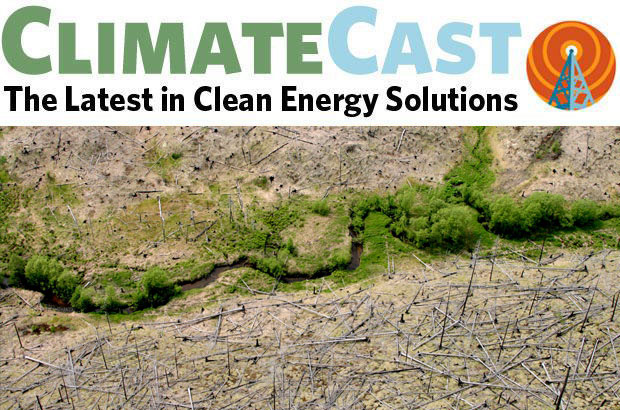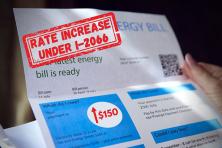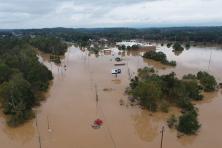No climate action, no infrastructure deal
A widespread “No Climate No Deal” campaign is placing pressure on the Biden administration and Congressional Democrats to enact strong climate protections and clean energy measures as part of a proposed infrastructure package, despite opposition from Republican leadership and a lack of support from a handful of key Democrats. In the Northwest, where memories of state-level climate progress are fresh, 32 Washington State legislators, more than 70 local elected officials and many community organizations have all written to their Senators and Representatives to urge them to support infrastructure legislation that includes strong climate protections and support for a clean energy transition.
While this policy battle is expected to continue through the summer and fall, advocates have some new reasons for optimism. US Senator Patty Murray (D-WA) has issued a strong statement of support, writing in the Seattle Times that Congress must now make a landmark investment in climate action. After a new report concluded that President Biden’s clean energy plan would cut emissions and save more than 300,000 lives, Democratic Senate negotiators announced that a Clean Electricity Standard would be part of infrastructure legislation. White House climate adviser Gina McCarthy said this week that if Congress fails to enact a clean energy standard, the Biden administration will use its regulatory authority to act on its own.
Climate policy expert (and former Climate Solutions senior policy adviser) KC Golden argues that the time has come for a robust, New Deal-style “Civilian Climate Corps—a national mobilization to put hundreds of thousands of people to work responding to climate impacts and building an equitable clean-energy economy.” US Senator Ed Markey (D-MA) has introduced a bill to pursue the project, which is backed by the Sunrise Movement and, at least nominally, by the Biden White House.
Journalist David Roberts is urging Congressional Democrats to resist calls “to constrain their ambitions,” arguing that “there is no ‘moderate’ position” when it comes to climate change. For essayist Rebecca Solnit, there is no more time for debate about how soon we might reach climate change “turning points;” the turning point, she writes, is upon us right now.
Northwest continues to reel from effects of heat wave
The devastating effects of the recent heatwave continue to be tallied in the Northwest, where nearly 800 people have died as a result of the high temperatures. In part because people of color are often disproportionately concentrated in urban “heat islands,” communities of color suffer disproportionately the health effects of extreme heat, among other environmental disparities.
The heat is cooking shellfish alive on Washington beaches and is expected to kill off nearly all juvenile salmon in California’s Sacramento River. Wildfires are raging across the drought-stricken region with unusual intensity for this early in the season, threatening native lands and communities in Oregon, Washington and B.C. Researchers confirm that, while the recent extreme heat wave was an anomaly, it would have been nearly impossible without climate change.
Climate denial, however, can be hard to quit: despite helping form a new “Conservative Climate Caucus”—certainly a welcome development—US Reps. Cathy McMorris Rodgers (R-WA) and Dan Newhouse (R-WA) didn’t think the climate change-intensified heat wave should cause any particular alarm about climate change. In Montana, while Governor Greg Gianforte has actively ignored calls to respond to the climate crisis—even attempting to sue Washington and Oregon to force those states to buy Montana coal—he wasn’t above pleading to the federal government for wildfire relief.
In terms of dealing with deniers: climate scientist Katharine Hayhoe has advice on talking about climate change with people who are simply dismissive of scientific evidence: don’t bother. For those who are somewhere on the spectrum between doubtful and alarmed, however, she suggests, do talk climate with them—and “focus on what unites us, not what divides us.”
Recent insights from climatesolutions.org
With heat pumps that can perform double duty cooling air in the summer and heating in the winter, all-electric buildings provide numerous advantages over fossil fuel heating. Climate Solutions Washington Policy Manager Deepa Sivarajan notes thal electric HVAC systems provide greater efficiency, lower health and safety risks, and less strain on electrical grids, on top of the climate benefits of reducing our dependence on fossil fuels. Oregon Transportation Policy Manager Victoria Paykar provides an update on that state’s momentum on advancing clean transportation, and Executive Director Gregg Small outlines paths forward for Northwest climate activism, considering both our recent policy wins in Washington and Oregon, and the increasingly unavoidable crisis of climate impacts.
One thing you can do
Add your voice to the growing demand that Congress not lose this important opportunity for climate progress: Ask your Senators and Representatives to make sure that American Jobs Plan legislation includes climate protections and a strong commitment to clean energy standards.
Bonus read: in response to the question “what can I do to fight climate change,” climate journalist Emily Atkin answers that anything one does is part of the everything it will take. “The battle for a livable future is a battle against fossil fuels,” she writes. “Right now, it's all hands on deck.”





